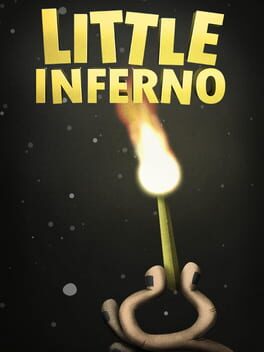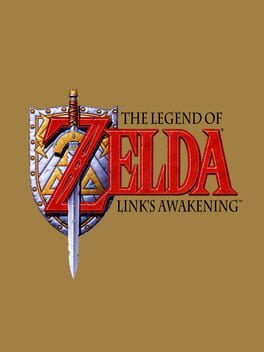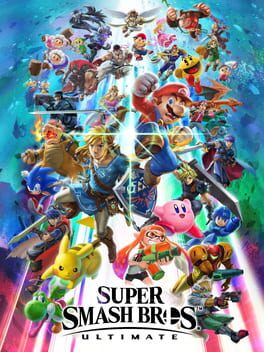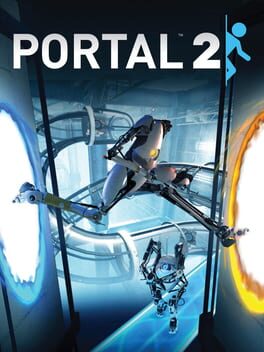Metamodernist Videogames
Videogames that fall under the sphere of metamodernism. Following the definition given by Timotheus Vermeulen and Robin van den Akker, metamodern games oscillate "between a modern enthusiasm and a postmodern irony, between hope and melancholy, between naiveté and knowingness, empathy and apathy, unity and plurality, totality and fragmentation, purity and ambiguity." I highly recommend checking out https://whatismetamodern.com/ and Thomas Flight's video on metamodernism in film: https://youtu.be/5xEi8qg266g. Feel free to make suggestions or debate me if you think any of these don't fall under metamodernism.
10 Games
Essay by Meredith Pasahow: https://whatismetamodern.com/games/little_inferno_metamodern_game/
This applies to the original as well, but I'm putting the remake here because it has more plays on this site. As Archagent said perfectly in their review: "While Live A Live could easily dwell on this misery, a condemnation of human art, it chooses not to. The final chapter is a stretch that argues that in spite of everything, of all the failures of old stories and all the demons that we possess within us, humanity has one very strong tool in its arsenal: we continue to reinvent our stories."
Probably a no-brainer. The true ending sequence is textbook metamodernism.
At first glance, the main metamodern thing TotK has going for it is that it's unhinged yet humanist. But there's more to it than that. In my view, the game's story at its core is about how Link's failure at the beginning of the game had repercussions both forward and backward in time. But what seems like a postmodern story about a hero failing and enacting bloody revenge is upended by a seemingly out-of-nowhere "Hollywood ending" (and I mean out of nowhere; outside of some odd stuff in the Adventure Log, there's zero foreshadowing for the de-draconification scene). While this might be attributed to poor writing, I argue that the lack of foreshadowing was an intentional choice by the developers to build expectations for a postmodern ending before subverting them with optimism. The ending still could have been handled better, but it's an intentional part of the metamodern sensibility.
This isn't an explanation for Majora's Mask as much as it is a note for the Zelda series as a whole. Zelda games, especially those from the 2000s, seem to incorporate strands of metamodernism into their aesthetic. For example, the mind-bending humanism of Majora's Mask, the extreme tone shifts of Twilight Princess, and the snarky optimism of Spirit Tracks indicate a sort of "proto-metamodernism." In a series about heroism and courage in a cursed land, it makes sense that most games draw upon metamodernism at least tangentially.
LAST ZELDA ENTRY I PROMISE
This is an odd case where the end credits music completely changes the way the game is viewed. Link's Awakening seems to be the quintessential postmodern videogame. An exploration of the nature of reality, it ends with the hero achieving his goal - by destroying an entire maybe-island and all the maybe-people on it. Understandably, the rather hopeful and heroic credits music seems out of place at first glance. Is the game mocking Link? I don't think so. The music is too earnest, and the weight upon Link's heart can still be heard at points. Instead, I think the credits music is saying "All the people of Kolohint may be gone, but they will live on in your heart, just as the games you love live on in your heart long after you finish them." It doesn't get much more metamodern than that.
This is an odd case where the end credits music completely changes the way the game is viewed. Link's Awakening seems to be the quintessential postmodern videogame. An exploration of the nature of reality, it ends with the hero achieving his goal - by destroying an entire maybe-island and all the maybe-people on it. Understandably, the rather hopeful and heroic credits music seems out of place at first glance. Is the game mocking Link? I don't think so. The music is too earnest, and the weight upon Link's heart can still be heard at points. Instead, I think the credits music is saying "All the people of Kolohint may be gone, but they will live on in your heart, just as the games you love live on in your heart long after you finish them." It doesn't get much more metamodern than that.
I haven't really played this game and what I've seen from it seems postmodern but I've heard the game truly centers around the value of striving for peace and the pacifist ending is really happy so I guess it fits.
This is more about the "series lore" than any individual Smash game. Ultimately (pun intended), the Smash Bros. series is about a boy revisiting his toys based on videogame characters at various stages of his life. The first game shows his experience as a young kid, Melee shows his teenage edginess, Brawl shows his struggle with paternalism and societal expectations as he enters adulthood, Sm4sh shows his struggles with self-loathing in early adulthood, and Ultimate shows his struggles with the demands of hypermodernist capitalism. No matter what he faces, his toys are always able to come to life and save him. In the final DLC trailer, the toys are ready to say goodbye, but one final character comes in to give them all a proper send-off. In the end, these are just a bunch of characters from various IPs owned by corporations. But the impact they have on people is very much real.
On the surface level, this game is a postmodern exercise, using roguelike structure as a metaphor for futility. But there's a twist: If Zagreus pushes hard enough, completes the Sisyphean task enough times (it can't be a coincidence he's in the game), he is able to make a real difference. In his family, in his home, in his life. There may be no escape, but that doesn't mean we're relegated to banging our heads against walls.
This might be the flimsiest explanation here. The Portal series is all about being a lab rat with the illusion of choice. This is true throughout the first two-thirds of Portal 2's single-player campaign. In the final third, however, you start bonding with GLaDOS, a former master now turned fellow victim of the lab. At the end, when she regains control, she realizes she is feeling sentimental towards a test subject. Vowing to destroy these emotions, she releases you onto an open plain, with no limitations or manipulative signs in sight. Maybe life outside of the rat race is possible.









